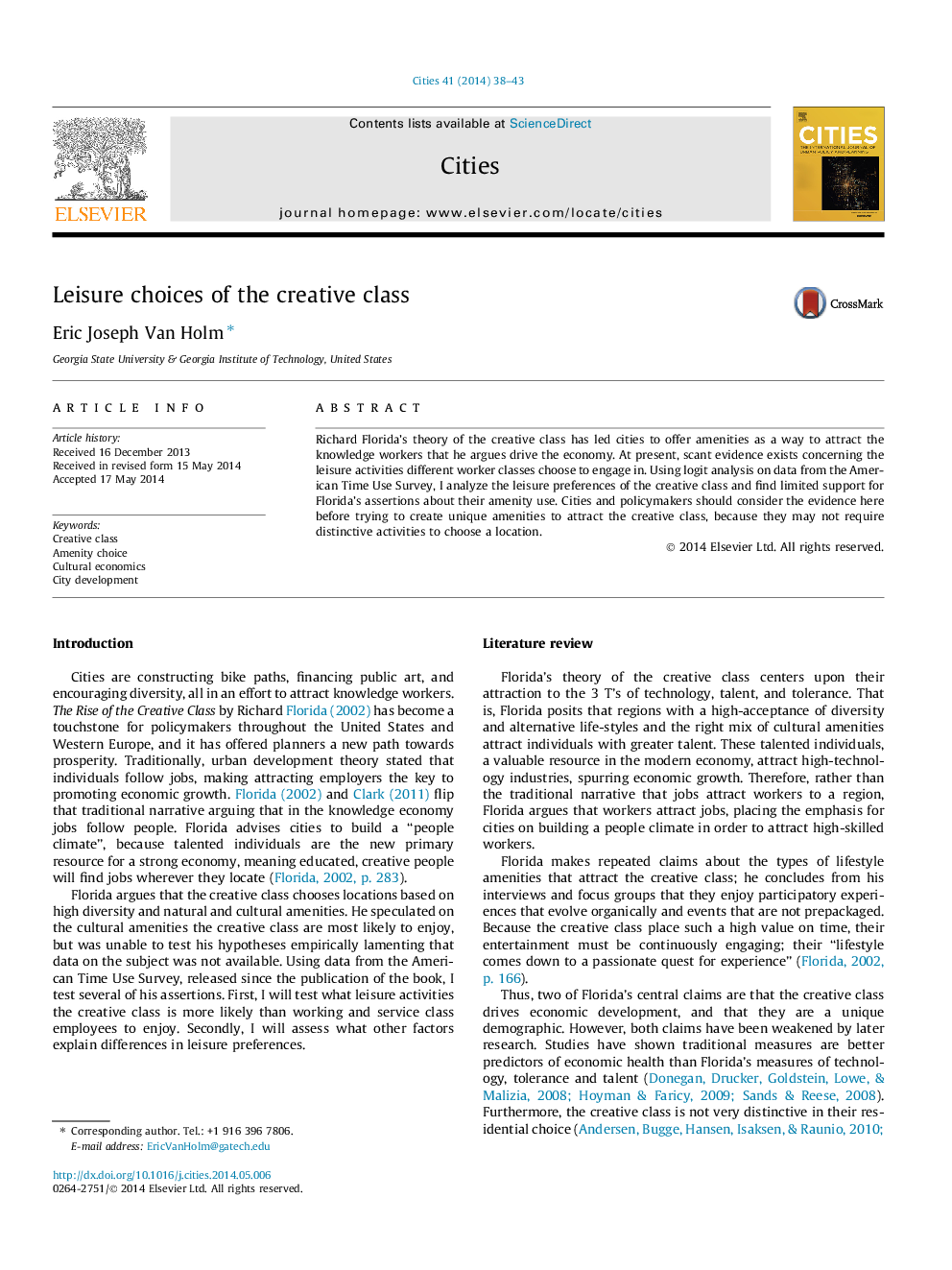| Article ID | Journal | Published Year | Pages | File Type |
|---|---|---|---|---|
| 10489859 | Cities | 2014 | 6 Pages |
Abstract
Richard Florida's theory of the creative class has led cities to offer amenities as a way to attract the knowledge workers that he argues drive the economy. At present, scant evidence exists concerning the leisure activities different worker classes choose to engage in. Using logit analysis on data from the American Time Use Survey, I analyze the leisure preferences of the creative class and find limited support for Florida's assertions about their amenity use. Cities and policymakers should consider the evidence here before trying to create unique amenities to attract the creative class, because they may not require distinctive activities to choose a location.
Related Topics
Social Sciences and Humanities
Business, Management and Accounting
Tourism, Leisure and Hospitality Management
Authors
Eric Joseph Van Holm,
